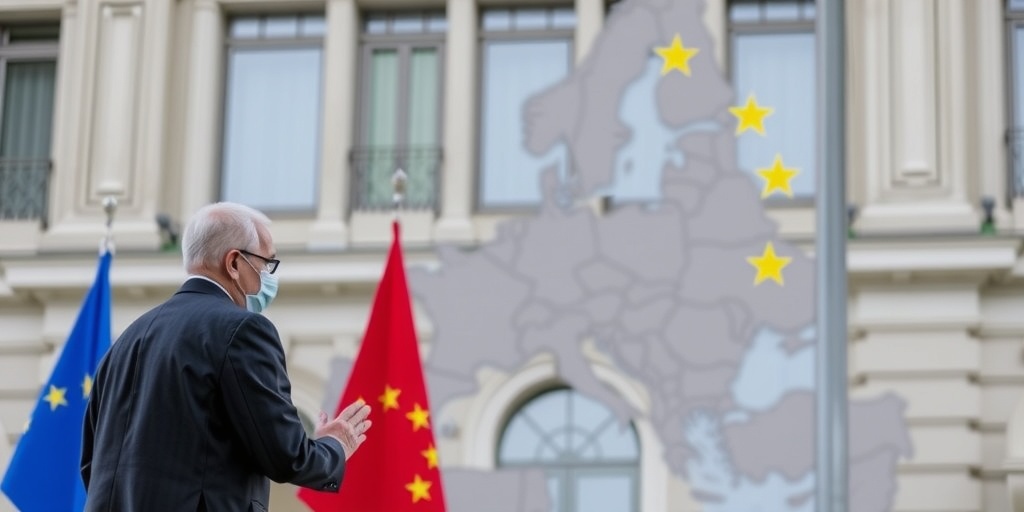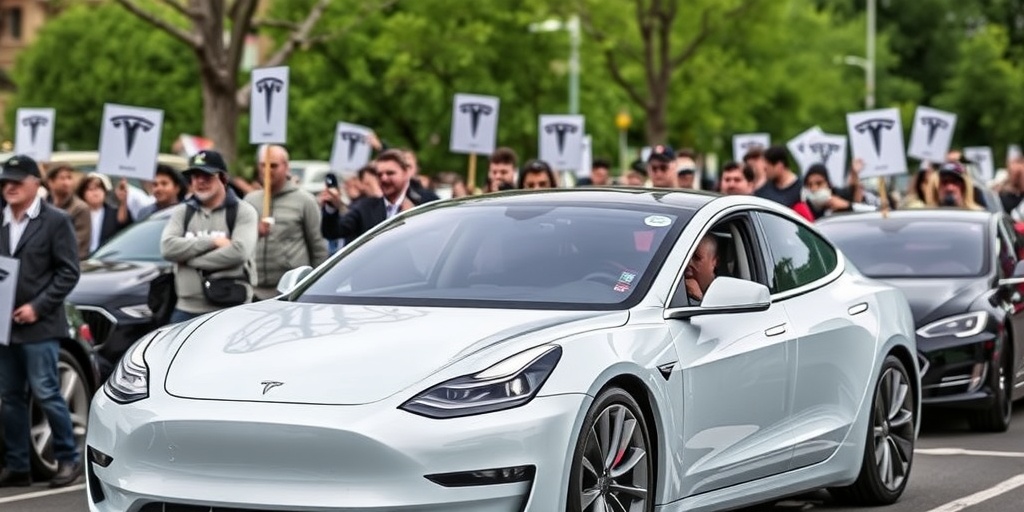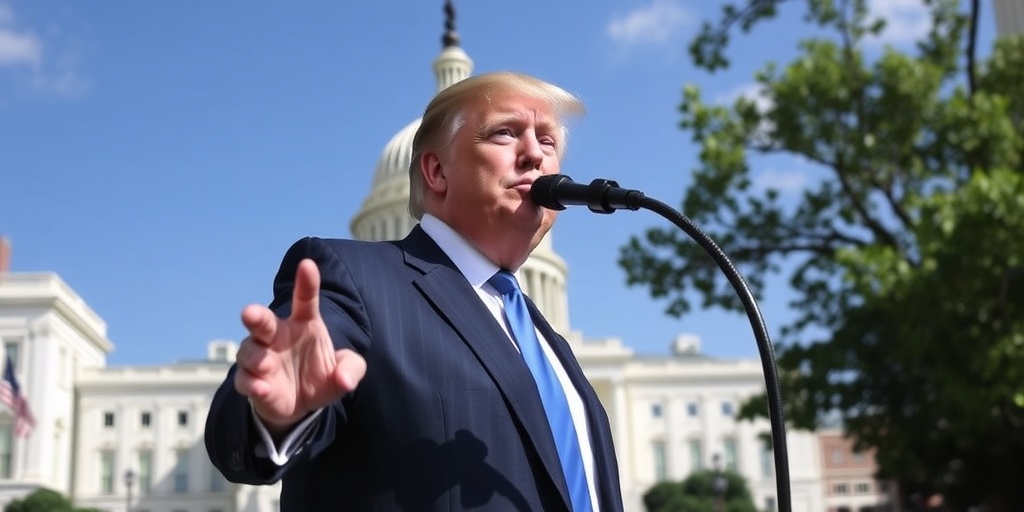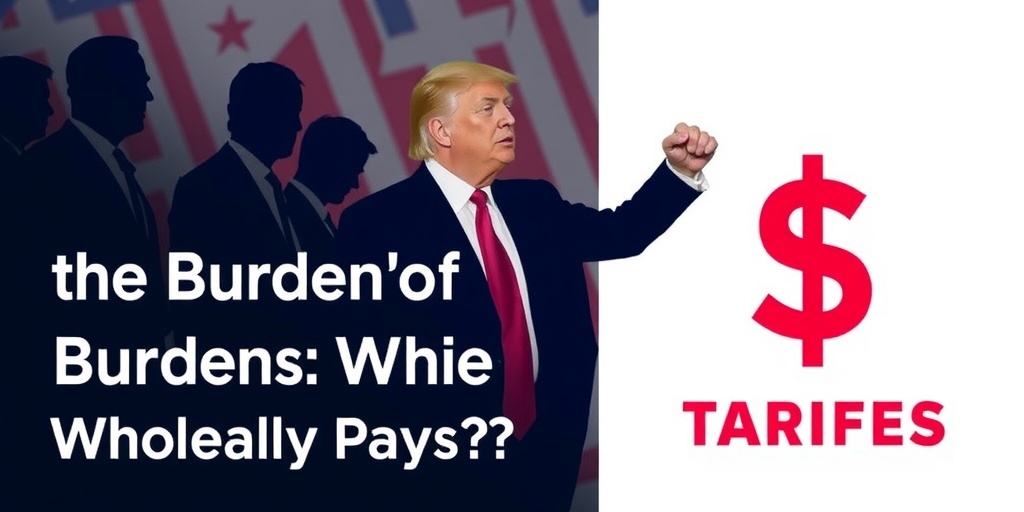Now Reading: Europe Takes Steps to Mitigate Trade War Impact
-
01
Europe Takes Steps to Mitigate Trade War Impact
Europe Takes Steps to Mitigate Trade War Impact

European Governments Respond to Trump’s Tariff Policies with Financial Support Packages
As the implications of President Trump’s overhaul of global trade policies ripple through Europe, multiple governments are introducing extensive financial support measures, amounting to billions of euros, in an effort to shield their economies, companies, and workers from the prevailing uncertainty and the looming threat of recession.
Countries including Germany, Italy, Portugal, and Spain have recently unveiled support packages exceeding €50 billion aimed at assisting businesses that are pausing exports to the United States due to the adverse effects of the trade policies. As these nations grapple with financial repercussions and consider placing employees on furlough, the urgency for economic support has intensified.
The recent announcement of a 90-day suspension of U.S. tariffs by Mr. Trump has offered a glimmer of hope for negotiations among European nations. However, the extent of the damage inflicted by previous tariffs is considerable. The financial markets have seen significant declines, exacerbating the situation by pushing governments to explore rescue measures at a time when budgets are already strained by increased military expenses as Trump adjusts his stance towards Russia, moving away from Ukraine.
French President Emmanuel Macron emphasized the precarious nature of the tariff suspension, warning that the existing levies—25% on steel, aluminum, and automobiles and 10% on all other products—remain in effect. This continuing economic pressure represents approximately €52 billion in tariffs imposed on the European Union, prompting a need for substantial countermeasures.
President Macron stated, “Europe must continue to work on all necessary countermeasures and mobilize all available levers to protect itself.” He relayed that French entrepreneurs and industrialists had voiced concerns about the ongoing impact of these tariffs on their operations.
The unpredictability stemming from the tariff announcements has already altered growth forecasts, with France, Germany, Italy, and Spain downgrading their economic outlooks. Moody’s ratings agency also published an analysis indicating that these tariffs have escalated the risk of a recession in Europe.
In Spain, where exports to the United States amount to €23 billion, predominantly in products like olive oil and chemicals, Prime Minister Pedro Sánchez’s administration revealed a €14 billion financial support package for enterprises affected by the escalating trade conflict. In a bid to strengthen trade ties, Sánchez met with Chinese President Xi Jinping, securing a commitment from Beijing to purchase more Spanish pork as the U.S. implements stricter tariff barriers.
Spain’s "trade response and recovery plan" aims to provide low-cost credit to businesses facing reduced orders from American clients or encountering liquidity difficulties. Additionally, the government plans to allocate €2 billion to insure risks associated with exports.
There is also concern over the human impact of the tariffs. To address potential job losses, Spain intends to reinstate a partial furlough system similar to that used during the Covid-19 pandemic, which would provide financial protection to workers if their companies need to reduce production.
Prime Minister Luís Montenegro of Portugal remarked, “The world as we knew it has changed; we have to adapt and react.” His government has set forth loans and additional support measures worth over €10 billion to stabilize the economy, particularly for the country’s 70,000 exporters and foreign investors relocating to Portugal. This support package encompasses financing for capital investments, alongside aid, grants, and credit insurance for exporters.
Meanwhile, Italian Prime Minister Giorgia Meloni aims to visit Washington next week for discussions with Trump regarding the tariffs, hoping to mitigate further escalation. The U.S. market is vital for Italian exports, including machinery, pharmaceuticals, and luxury goods such as Parmesan cheese and leather products.
Meloni has described the tariffs as “wrong” and disclosed plans to redirect up to €25 billion from the European Union’s post-pandemic recovery fund to alleviate the economic strain resulting from the trade conflict. She indicated that approximately €14 billion had already been earmarked to “support employment and increase productivity,” along with an additional €11 billion that could be repurposed from another development fund.
In Germany, Mr. Trump’s tariffs pose a significant challenge for the new government that is striving to rejuvenate the country’s economy, the largest in Europe. The tariffs threaten to raise prices for American consumers on popular German brands, including Porsche and Jägermeister, among others.
The new coalition government led by Friedrich Merz recently announced the establishment of the Germany Fund, aimed at reinforcing the economy. This initiative is designed to support small and medium-sized enterprises, which are crucial to Germany’s economic framework, and anticipates generating funds up to €100 billion from private investors, fueled by an initial €10 billion from public resources.
As Europe grapples with the repercussions of Trump’s tariffs and the specter of recession looms larger, unity among its nations is critical. Merz asserted that European countries should remain cohesive in their efforts to negotiate for a favorable outcome. He proposed, “Let’s all set tariffs of 0 percent on trans-Atlantic trade, and then the problem will be solved.”
In summary, European nations are mobilizing a variety of financial strategies to counter the economic fallout of the U.S. tariff policies. With the potential for significant long-term consequences, the path forward requires careful navigation and collaboration among European governments to protect their economies and maintain stability in the face of international trade volatility.
Stay Informed With the Latest & Most Important News
Previous Post
Next Post
-
 01New technology breakthrough has everyone talking right now
01New technology breakthrough has everyone talking right now -
 02Unbelievable life hack everyone needs to try today
02Unbelievable life hack everyone needs to try today -
 03Fascinating discovery found buried deep beneath the ocean
03Fascinating discovery found buried deep beneath the ocean -
 04Man invents genius device that solves everyday problems
04Man invents genius device that solves everyday problems -
 05Shocking discovery that changes what we know forever
05Shocking discovery that changes what we know forever -
 06Internet goes wild over celebrity’s unexpected fashion choice
06Internet goes wild over celebrity’s unexpected fashion choice -
 07Rare animal sighting stuns scientists and wildlife lovers
07Rare animal sighting stuns scientists and wildlife lovers





















